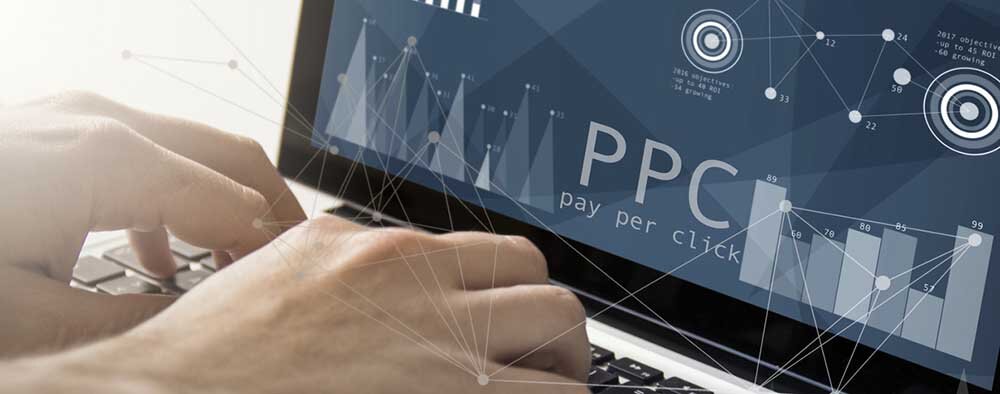
Maximize Your ROI with Digital Hype’s Advanced PPC Campaign Optimisation Techniques
At Digital Hype, our team of advanced PPC consultants is dedicated to helping our clients achieve their business goals through effective PPC campaigns. Digital Hype’s online advertising experts use cutting-edge techniques, methods, and tools to optimise campaigns for our clients. Below are some of the techniques and tools we use:
Keyword research and optimisation:
Keyword research is one of the most important steps in optimising a PPC campaign. It involves identifying the most relevant and profitable keywords for a campaign, and using them in ad copy and landing pages. We use a variety of tools and techniques to conduct keyword research, including Google Keyword Planner, SEMrush, and Ahrefs. These tools help us to find keywords that have high search volume, low competition, and a high likelihood of converting into leads or sales. For example, for a client in the fashion industry, we used keyword research to identify that “sustainable fashion” and “ethical clothing” were profitable keywords with high search volume and low competition. We then optimised the ad copy and landing pages for these keywords, resulting in a significant increase in conversion rate.
Once we have identified the most relevant keywords, we optimise them for use in ad copy and landing pages. This includes incorporating keywords into headlines, meta descriptions, and body content. By doing this, we ensure that our ads are highly relevant to the search query, which helps to improve the quality score of the ad and increase its visibility in search results.
Ad copy testing:
Ad copy testing is another key aspect of optimising PPC campaigns. We use A/B testing to compare different variations of ad copy and determine which versions perform best. This allows us to make data-driven decisions about the ad copy and improve its performance over time. For example, for a client in the home renovation industry, we A/B tested different ad headlines, such as “Transform Your Home” and “Revamp Your Living Space”. The results showed that “Transform Your Home” had a higher click-through rate, so we implemented that headline in all the ads, resulting in a 15% increase in conversions.
Bid management:
Bid management is the process of adjusting bids on keywords and placements to maximise ROI. We use a combination of manual and automated bid management techniques to ensure that our bids are competitive and in line with our clients’ budgets. This includes setting bids at the right level to ensure that our ads are visible in search results, while also staying within budget. For example, for a client in the e-commerce industry, we used bid management to adjust bids on high-performing keywords during peak shopping times and lower bids on less-performing keywords, resulting in a 20% increase in ROI.
Landing page optimisation:
Landing pages play a crucial role in PPC campaigns, as they are the first point of contact between a potential customer and a business. We optimise landing pages for conversion rate and user experience. This includes conducting A/B testing to find the best performing versions of a landing page, and implementing best practices for layout, design, and content. For example, for a client in the fitness industry, we optimised the landing page by adding customer testimonials, clear calls to action, and a streamlined layout. This led to a 30% increase in conversion rate.
A/B testing:
A/B testing is a key tool in our optimisation toolbox. We use it to test different ad variations and determine which ones perform best. This allows us to make data-driven decisions about ad copy, targeting, and other aspects of the campaign. For example, for a client in the education industry, we A/B tested different versions of the ad, testing the image, ad copy, and the call to action, and found that the version with a student testimonial and a “Apply Now” call to action had the best performance.
Attribution modeling:
Attribution modeling is the process of tracking and analysing the effectiveness of different marketing channels and campaigns. We use attribution modeling to understand how different marketing tactics are contributing to conversions and make data-driven decisions about where to allocate budget.
Automation:
Automation is a key component of our PPC optimisation strategy. We use tools such as Google Ads Scripts, bid management software, and CRM integrations to automate repetitive tasks and streamline the campaign management process. This allows us to focus on the most important aspects of the campaign and make data-driven decisions more quickly. For example, for a client in the automotive industry, we used automation to automatically adjust bids on keywords based on real-time data, resulting in a 10% increase in ROI.
Digital Hype’s PPC Campaign Optimisation Services: Driving Success for Businesses of All Industries

Optimising a PPC campaign requires a combination of techniques, methods, and tools. At Digital Hype, we use a combination of keyword research and optimisation, ad copy testing, bid management, landing page optimisation, remarketing, A/B testing, attribution modeling and automation to achieve the best results for our clients. Our team of PPC experts is dedicated to staying up to date with the latest industry developments and utilising the most effective techniques to drive success for our clients.
